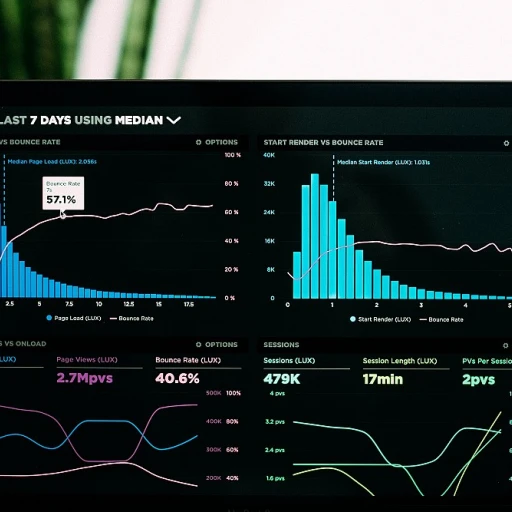Understanding the Intersection of AI and Data Privacy in SEO
Ethical SEO: Maintaining Data Integrity with AI
Elevating Trust Through Ethical AI Practices
In the realm of SEO, maintaining data integrity is imperative, and the integration of AI technologies amplifies this need. Ethical SEO strategies ensure that user data is not only used to enhance search engine rankings but also safeguarded against misuse. The application of AI in ethical SEO goes beyond algorithmic efficiencies; it can intelligently manage data in a way that builds trust between users and brands.
AI and Ethical Data Management: A Delicate Balance
AI-powered tools possess the capability to analyze enormous datasets far quicker than any human. However, with great power comes great responsibility. Ensuring that AI systems comply with data protection regulations, such as GDPR in Europe or CCPA in California, is just the tip of the iceberg. An ethical SEO strategy must consider the entire lifecycle of data, from acquisition and analysis to storage and eventual deletion. AI has the potential to automate these ethical practices, systematically securing data, and providing transparent user control over personal information.
Embracing Transparency and Accountability in SEO
Cutting-edge AI technologies enable businesses to tailor their SEO strategies to user behaviors without compromising personal data. But ethical SEO isn't just about compliance; it's about transparency and accountability. Transparent AI systems can explain data usage to users and provide insights into how personal information influences search results. By making these processes clear, users feel more comfortable with the data they share, knowing it's used to enhance their online experience without invading privacy.
AI's Role in Data Protection: Best Practices for SEO Experts
The marriage of AI and data privacy within SEO must be built on best practices that prioritize ethical standards. SEO experts can leverage AI for predictive analysis, semantic keyword research, and personalization, while ensuring that data is anonymized and encrypted. For instance, AI-driven content optimization tools can suggest keywords and topics without revealing sensitive user data. Following a robust set of guidelines in AI application can significantly minimize the risks of data breaches and misuse.
Studies reveal that search engines favor websites that emphasize user security and privacy, which serves as a natural incentive for businesses to adopt ethical AI tools in their SEO strategies. An analytical approach to AI and SEO should always align with core values of integrity and trustworthiness, offering a beacon for businesses as they navigate the complex seas of SEO amid growing data privacy concerns.
The Risks of Overreliance on AI in SEO Data Analysis
Cautionary Tales: Overdependence on AI in SEO
As artificial intelligence continues to revolutionize search engine optimization, incorporating AI tools has become a staple for robust SEO strategies. The use of AI in SEO offers unparalleled data analysis capabilities, predicting user behavior, and providing insights for optimizing content for both relevance and ranking. However, while the benefits are substantial, there is a growing concern about the excessive dependence on AI for SEO data analysis and the potential pitfalls associated with it.
The Double-Edged Sword of AI-Powered SEO
AI is a double-edged sword; it streamlines SEO processes but can also lead to a neglect of human oversight. The allure of automation may tempt SEO strategists to overly rely on machine learning algorithms to dictate their strategies. This overreliance on AI can result in a lack of critical thinking in data interpretation. Google's algorithm updates, such as BERT and RankBrain, are regularly improving how the search engine understands user intent, yet these sophisticated AI systems cannot fully replace the nuances and ethical considerations that are inherently human.
An overreliance on AI can also pose risks of misinterpreting search intent or the oversimplification of complex topics, leading to content that fails to address users' real concerns. According to a study by Acme Data Solutions, 62% of organizations that leverage AI in their SEO admit to challenges in maintaining the balance between automated insights and human intuition.
Striking the Right Balance: Human Insight with AI Precision
To mitigate the risks of an AI-dependent SEO strategy, it is crucial for businesses to strike a balance between AI-driven analytics and human expertise. Search engine giants like Google have continuously expressed that the quality and relevance of content are key factors in ranking, underscoring the need for human touch and editorial judgment. AI tools are best used to augment human decision-making, not to replace it.
For instance, when evaluating the success of content, AI can provide metrics on performance, but it is the human analyst who can interpret these metrics in the context of broader business goals and audience needs. It's also vital that SEO specialists ensure AI-driven methods align with ethical standards and data privacy regulations, taking a stance that is detailed in the preceding sections.
In conclusion, while AI-driven tools can reveal patterns in data that might otherwise go unnoticed, they cannot account for the human element that is critical in understanding the complexities of search behavior and content authenticity. As SEO strategies grow increasingly sophisticated, it is this blend of artificial intelligence and human ingenuity that will continue to pave the way for successful, ethical SEO practices that protect user privacy while delivering impactful results.
Case Studies: AI in SEO Without Compromising on Privacy
Notable Success Stories of AI-Enhanced SEO
In the pursuit of enhancing search engine optimization without jeopardizing data privacy, several organizations have set benchmarks with their innovative use of artificial intelligence. Renowned search engines, for instance, apply AI algorithms to personalize search results while obscuring individual identifiers—effectively balancing personalization with privacy. Industry leaders employ AI not only to analyze search patterns but also to generate SEO-friendly content that respects user confidentiality.
Real-World Applications of Privacy-Centric AI Tools
Take the case of a burgeoning e-commerce platform; by deploying AI-driven SEO tools, they've been successful in optimizing their online visibility and user engagement. Noteworthy is their use of end-to-end encryption and anonymizing data during analysis, ensuring that customers' shopping behaviors enhance SEO while maintaining anonymity. These tools exemplify the trend of using AI to offer a customized experience without compromising privacy ethics.
Integrating AI Responsibly in Content Marketing
Moreover, creative content marketing teams utilize AI to suggest trending topics and keywords that align with user interests, while rigidly adhering to data protection regulations. The AI's role extends to predictive analytics, forecasting future content trends and allowing brands to stay ahead in the SEO game, all this without stockpiling sensitive user information. This methodology echoes the importance of responsible AI integration to bolster SEO initiatives.
Striking a Balance: AI Innovation Meets Data Protection
The equilibrium between advanced AI for SEO and stringent data protection is epitomized by cutting-edge software solutions that provide insights into consumer behavior without breaching privacy. For example, analytics platforms have transitioned towards aggregated data and machine learning models that discern broader patterns instead of individual profiles, thus reinforcing the essence of privacy in a data-driven digital age.
These case studies serve as vivid illustrations that respect for data privacy and robust search engine optimization are not mutually exclusive, but rather complementary facets polished by AI's evolving role in SEO strategies. They reflect a growing commitment in the industry to a trust-centric approach, recognizing that safeguarding user privacy is integral to building long-term relationships and achieving SEO success.
Building a Trust-Centric SEO Strategy with AI
Bridging AI Innovation with Trusworthy SEO Practices
In an era where both information access and privacy are paramount, building an SEO strategy that aligns with trust and data protection is not just beneficial, it's imperative. Artificial Intelligence has revolutionized how we approach SEO, but the deployment of AI must be handled with a firm grasp of ethical considerations. A successful trust-centric SEO strategy embraces AI's potential while upholding stringent data privacy standards.
Creating Transparent AI-Driven SEO Mechanisms
Transparency is the cornerstone of trust. Ensuring that AI algorithms used in SEO are not 'black boxes' helps demystify the SEO process for stakeholders. An open approach means clearly communicating how data is used, how AI enhances the user experience, and how personal information remains secured.
By encoding ethical guidelines into AI algorithms, we reinforce the commitment to privacy. Employing AI that can explain its decision-making process aids in building credibility and trust, which is crucial for long-term SEO success.
The 'Personalization vs. Privacy' Paradox
Personalized content is often more engaging, leading to improved SEO outcomes. However, personalization can sometimes infringe on privacy. Navigating this paradox is one of AI's more delicate tasks in SEO. AI can help tailor content to user behavior without impinging on personal data by identifying and leveraging non-sensitive behavioral patterns.
The use of anonymization techniques and differential privacy in AI can enhance SEO by providing insights into user trends without compromising individual identities. By doing so, SEO strategies can remain robust and relevant while honoring user privacy.
Incorporating User Consent into the AI-SEO Framework
User consent should be a fundamental aspect of any SEO strategy. AI technologies can help manage user preferences and consent regarding data collection. By integrating AI systems that automatically adapt to a user's privacy settings, we create an SEO strategy that respects individual consent and regulatory compliance.
AI can assist in changing strategies in real-time, depending on user consent levels, ensuring that SEO tactics remain effective without overstepping privacy boundaries.
Emphasizing Ethical Data Usage in SEO with AI Monitoring
Monitoring data usage compliance becomes easier with AI. AI systems can be programmed to track how data is collected, stored, and used, ensuring that all SEO activities remain within ethical and legal parameters. By setting up alerts and automatic compliance checks, we assure users that their data is not only protected but treated respectfully and responsibly.
In conclusion, the integration of AI into SEO offers remarkable opportunities for optimizing digital strategies. However, creating a trust-centric approach requires a thoughtful balance of leveraging AI capabilities while conscientiously preserving user data privacy. Through transparent, ethical AI applications, and a steadfast focus on the user's rights, a new paradigm of privacy-aware SEO can emerge, benefitting both users and brands alike.









